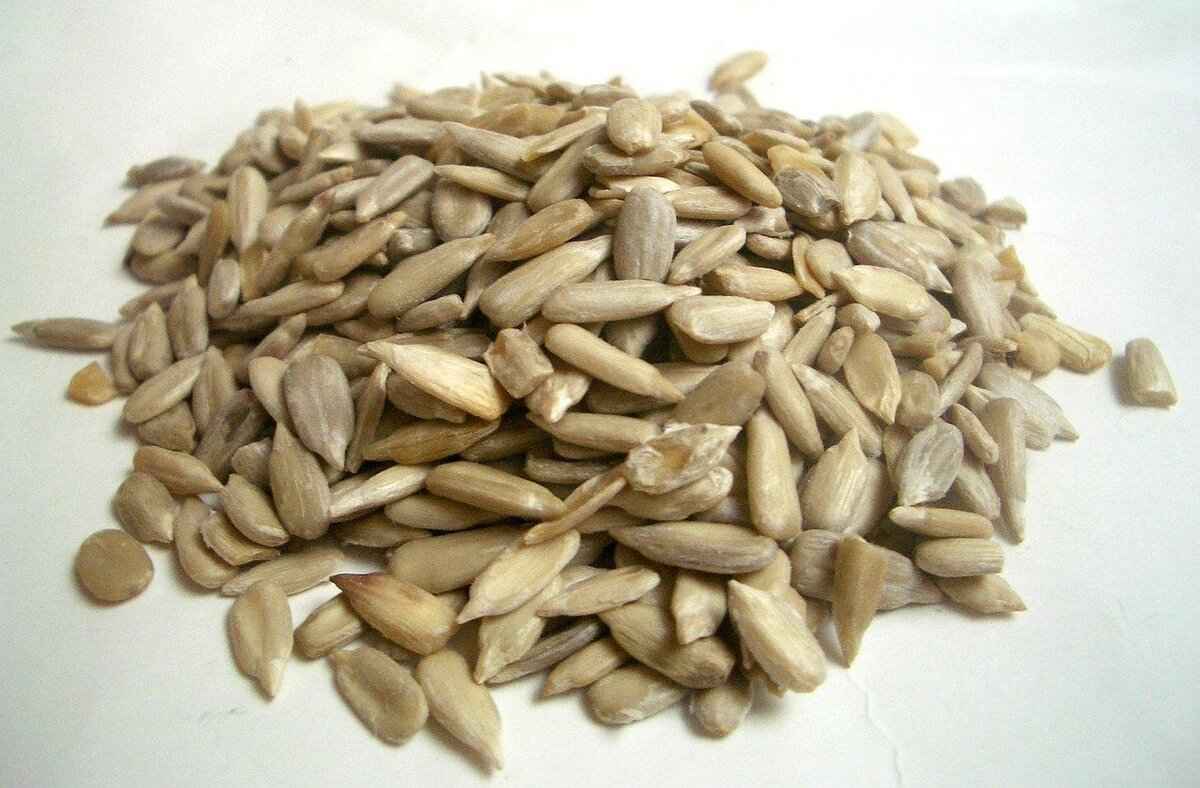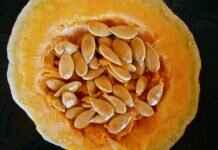Chia seeds, derived from the Salvia hispanica plant, have gained immense popularity due to their impressive nutritional profile. Among their many benefits, the high fiber content stands out, playing a crucial role in enhancing digestion and promoting gut health. This article delves into the significance of chia seeds, particularly their fiber, and how they contribute to a healthier digestive system.
Chia seeds are tiny yet mighty, packed with essential nutrients. They are rich in omega-3 fatty acids, protein, and various minerals, making them a superfood. However, their fiber content is particularly noteworthy, with about 10 grams of fiber per ounce (28 grams). This makes chia seeds an excellent addition to any diet.
Fiber is vital for maintaining a healthy digestive system. It aids in regulating bowel movements, preventing constipation, and promoting a balanced gut microbiome. A diet rich in fiber encourages the growth of beneficial bacteria, which are essential for overall gut health.
Chia seeds contain both soluble and insoluble fiber, each offering unique benefits:
- Soluble Fiber: This type absorbs water, forming a gel-like substance that slows digestion, helping to stabilize blood sugar levels and enhance feelings of fullness.
- Insoluble Fiber: This fiber adds bulk to stool, promoting regularity and ensuring food moves efficiently through the digestive tract.
Chia seeds are also rich in prebiotics, which nourish the good bacteria in your gut. By supporting these beneficial microorganisms, chia seeds help to improve digestion and enhance overall gut function.
Beyond their fiber content, chia seeds offer numerous health benefits, including:
- Omega-3 Fatty Acids: These essential fats help reduce inflammation and support heart health.
- Antioxidants: Chia seeds are loaded with antioxidants that combat oxidative stress and protect cells from damage.
Incorporating chia seeds into your daily meals is simple:
- Chia Pudding: Combine chia seeds with milk or a plant-based alternative for a nutritious snack or breakfast.
- Sprinkling on Meals: Add chia seeds to salads, oatmeal, or smoothies for a nutritional boost without altering the flavor.
While chia seeds are generally safe, moderation is key. Some individuals may experience digestive discomfort, such as bloating or gas, especially if consumed in large quantities without adequate hydration. It’s advisable to introduce them gradually into your diet.
Although rare, some people may have an allergic reaction to chia seeds. If you have a history of food allergies, monitor your body’s response when trying chia seeds for the first time.
In summary, chia seeds are a powerhouse of nutrition, particularly known for their fiber content, which plays a significant role in enhancing digestion and supporting gut health. By incorporating chia seeds into your diet, you can enjoy their numerous health benefits and contribute to your overall well-being.

What Are Chia Seeds?
Chia seeds are remarkable tiny seeds derived from the Salvia hispanica plant, which is native to Central America. These seeds have gained immense popularity in recent years due to their impressive nutritional profile and diverse health benefits. They are rich in essential nutrients, making them a fantastic addition to any diet.
One of the standout features of chia seeds is their exceptionally high fiber content. In fact, just one ounce (approximately 28 grams) of chia seeds contains about 11 grams of fiber, which is nearly one-third of the daily recommended intake for adults. This high fiber content is primarily composed of both soluble and insoluble fibers, each playing a crucial role in promoting digestive health.
Chia seeds are not only fiber-rich but also packed with other essential nutrients. They are an excellent source of omega-3 fatty acids, particularly alpha-linolenic acid (ALA), which is vital for heart health. Additionally, chia seeds contain a variety of vitamins and minerals, including calcium, magnesium, and phosphorus, which are critical for maintaining strong bones and overall health.
The high fiber content in chia seeds contributes significantly to better digestion. Fiber is known to promote regular bowel movements, which can help prevent constipation and improve overall gut health. Moreover, the soluble fiber in chia seeds forms a gel-like substance when mixed with water, which slows digestion and enhances the feeling of fullness. This can be particularly beneficial for individuals looking to manage their weight.
- Soluble Fiber: This type of fiber dissolves in water and forms a gel-like consistency. It helps regulate blood sugar levels and can aid in cholesterol management.
- Insoluble Fiber: Unlike soluble fiber, insoluble fiber does not dissolve in water. It adds bulk to the stool and promotes the movement of food through the digestive tract, reducing the risk of digestive disorders.
Yes, chia seeds can significantly support gut health. They act as prebiotics, which are substances that nourish beneficial gut bacteria. A healthy gut microbiome is essential for optimal digestion and can influence overall health, including immune function and mental well-being.
Incorporating chia seeds into your daily meals is simple and versatile. Here are some popular methods:
- Smoothies: Blend chia seeds into your favorite smoothie for added nutrition.
- Chia Pudding: Combine chia seeds with your choice of milk (dairy or plant-based) and let them soak overnight for a delicious and nutritious breakfast.
- Sprinkling: Add chia seeds to salads, oatmeal, or soups to enhance texture and nutrition without altering the flavor.
While chia seeds are generally safe for most individuals, consuming them in excessive amounts may lead to digestive discomfort. It’s essential to start with small quantities and gradually increase your intake. Additionally, staying hydrated is crucial when consuming high-fiber foods like chia seeds.
Chia seeds are a powerhouse of nutrition, offering a plethora of health benefits, particularly for digestion and gut health. Their high fiber content, combined with essential fatty acids and antioxidants, makes them an invaluable addition to any diet. Whether you enjoy them in smoothies, puddings, or as a topping, chia seeds can enhance both the nutrition and enjoyment of your meals.
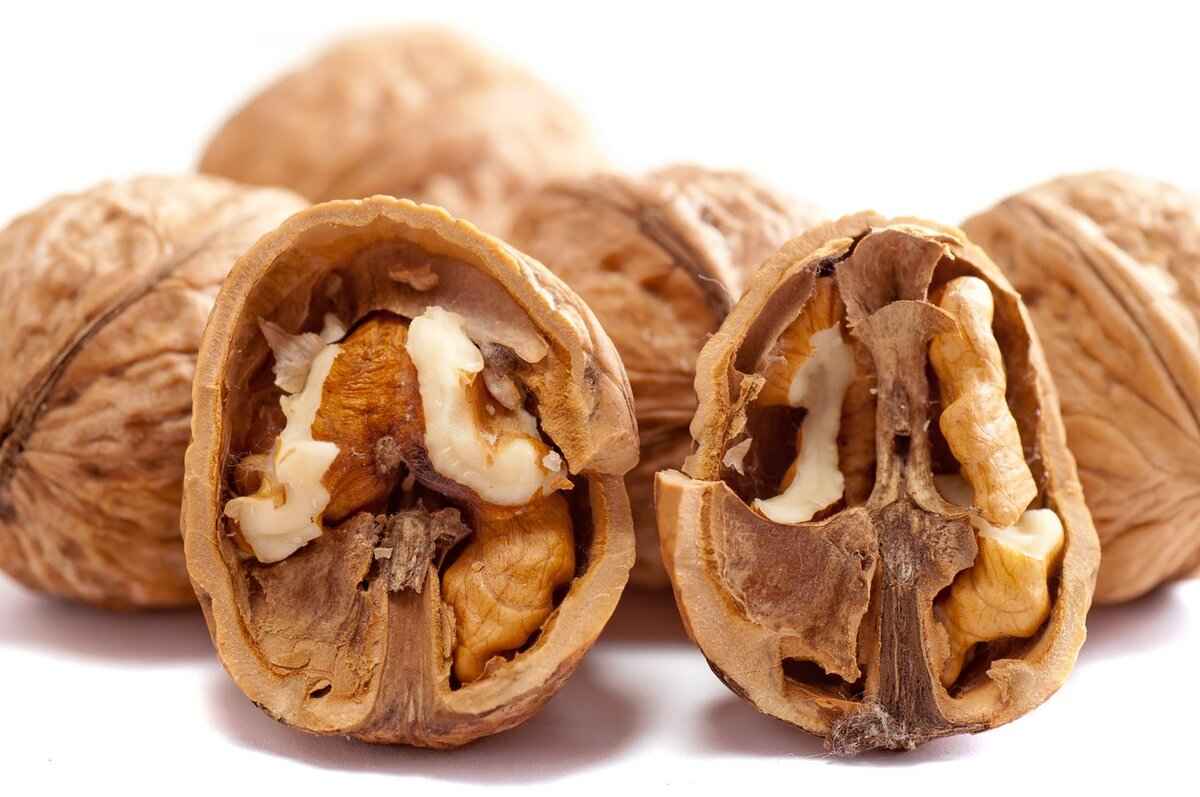
Why Is Fiber Important for Digestion?
Fiber is an essential component of a healthy diet, playing a pivotal role in maintaining digestive health. It is crucial for promoting regular bowel movements and preventing constipation, which can lead to various gastrointestinal disorders. In this section, we will explore the significance of fiber in digestion and its broader impact on overall well-being.
One of the primary functions of fiber is to add bulk to the stool, making it easier to pass through the digestive tract. This is particularly important because a well-functioning digestive system relies on regularity to prevent discomfort and complications. When fiber is consumed, it absorbs water and swells, forming a gel-like substance that helps to soften the stool.
There are two main types of fiber: soluble and insoluble. Each type plays a unique role in digestive health:
- Soluble Fiber: This type dissolves in water and forms a gel-like consistency. It can help to slow digestion, which is beneficial for stabilizing blood sugar levels and enhancing feelings of fullness.
- Insoluble Fiber: This type does not dissolve in water and adds bulk to the stool, promoting faster transit through the digestive system. It is essential for preventing constipation and maintaining regular bowel movements.
Fiber is not just beneficial for physical digestion; it also plays a vital role in supporting a healthy gut microbiome. A healthy gut microbiome is essential for overall well-being as it helps in the absorption of nutrients and the production of essential vitamins. Fiber acts as a prebiotic, providing nourishment for beneficial bacteria in the gut. This, in turn, can enhance digestion and improve gut function.
In addition to its digestive benefits, fiber contributes to various health outcomes, including:
- Weight Management: High-fiber foods are often more filling, which can help control appetite and reduce overall calorie intake.
- Heart Health: Fiber, particularly soluble fiber, can help lower cholesterol levels, reducing the risk of heart disease.
- Blood Sugar Control: Fiber can help regulate blood sugar levels, making it beneficial for individuals with diabetes.
Incorporating more fiber into your diet is easier than you might think. Here are some practical tips:
- Choose Whole Grains: Opt for whole grain bread, pasta, and cereals instead of refined versions.
- Add Fruits and Vegetables: Include a variety of fruits and vegetables in your meals and snacks.
- Snack on Nuts and Seeds: These are excellent sources of fiber and can be a healthy snack option.
In summary, fiber is a vital component of a healthy diet that supports not only digestive health but also overall well-being. By understanding its importance and finding ways to incorporate it into your daily meals, you can enjoy the numerous benefits it offers.
Types of Fiber Found in Chia Seeds
Chia seeds are not only a popular superfood but also a powerhouse of dietary fiber, contributing significantly to digestive health. They contain two main types of fiber: soluble fiber and insoluble fiber, each offering distinct benefits that can enhance gut function and overall well-being.
- Soluble Fiber: This type of fiber dissolves in water, forming a gel-like substance in the digestive tract. It plays a crucial role in regulating blood sugar levels by slowing digestion and the absorption of carbohydrates. This can lead to improved satiety, helping individuals feel full longer and potentially aiding in weight management.
- Insoluble Fiber: Unlike soluble fiber, insoluble fiber does not dissolve in water. Instead, it adds bulk to the stool and accelerates the passage of food through the digestive system. This is essential for maintaining regular bowel movements and preventing constipation. A diet rich in insoluble fiber can help reduce the risk of developing digestive disorders, such as diverticulitis.
Understanding the balance between these two types of fiber is vital for maximizing the health benefits of chia seeds. For instance, the gel-forming properties of soluble fiber can help manage cholesterol levels and improve heart health, while the bulk-forming nature of insoluble fiber supports a healthy digestive tract.
Moreover, chia seeds are unique in their ability to retain water, which can enhance the effectiveness of both types of fiber. When chia seeds are soaked in liquid, they expand and form a gel that can help to increase the feeling of fullness, making them an excellent addition to meals and snacks for those looking to manage their weight.
Incorporating chia seeds into your diet can be simple and versatile. Here are some practical tips:
- Add chia seeds to smoothies for a nutrient boost.
- Sprinkle them on top of salads or yogurt for added texture and fiber.
- Use chia seeds in baking recipes, such as muffins or bread, to enhance fiber content.
In summary, the fiber content in chia seeds is a key factor in promoting digestive health. By understanding the roles of soluble and insoluble fiber, individuals can make informed choices about incorporating these tiny seeds into their diets. Whether you are looking to improve digestion, manage weight, or support overall gut health, chia seeds offer a simple and effective solution.
Soluble Fiber: The Gel-Forming Fiber
is a crucial component of a balanced diet, particularly for those seeking to enhance their digestive health. This type of fiber is known for its unique ability to absorb water and form a gel-like substance in the digestive tract. This process can significantly aid in slowing digestion and stabilizing blood sugar levels, which are essential for maintaining overall health.
When soluble fiber is consumed, it interacts with the digestive system in several beneficial ways. First, it creates a viscous gel that can slow the absorption of nutrients, leading to a more gradual release of sugars into the bloodstream. This property is particularly beneficial for individuals managing diabetes or those looking to maintain stable energy levels throughout the day.
How Does Soluble Fiber Improve Satiety? One of the remarkable aspects of soluble fiber is its ability to enhance feelings of fullness, or satiety. When the gel forms in the stomach, it takes up space and sends signals to the brain that you are full. This can help in controlling appetite and reducing overall calorie intake, making it a valuable tool for those aiming to manage their weight.
What Foods Are Rich in Soluble Fiber? Incorporating soluble fiber into your diet is easier than you might think. Foods such as oats, beans, lentils, apples, and chia seeds are excellent sources. For instance, chia seeds are particularly noteworthy because they can absorb up to 12 times their weight in water, making them a powerhouse of soluble fiber.
- Oats: A common breakfast choice, oats are rich in beta-glucan, a type of soluble fiber that has been linked to heart health.
- Beans: Versatile and nutritious, beans are not only high in protein but also provide a substantial amount of soluble fiber.
- Lentils: These legumes are packed with nutrients and are an excellent source of soluble fiber, perfect for soups and salads.
- Apples: With their skin on, apples provide a good amount of soluble fiber, particularly pectin, which is beneficial for gut health.
- Chia Seeds: As mentioned, chia seeds are unique for their ability to form a gel, making them a fantastic addition to smoothies and puddings.
How Much Soluble Fiber Do You Need? The recommended daily intake of fiber is about 25 grams for women and 38 grams for men, with soluble fiber making up a portion of this total. Gradually increasing your intake of soluble fiber can help your digestive system adjust, preventing any discomfort that may arise from sudden changes in diet.
Are There Any Side Effects? While soluble fiber is generally safe and beneficial, consuming it in excessive amounts without adequate hydration can lead to digestive issues such as bloating or gas. It’s essential to drink plenty of water when increasing fiber intake to help it move smoothly through the digestive system.
In summary, soluble fiber is a vital nutrient that plays a significant role in digestive health. By incorporating foods rich in soluble fiber into your diet, you can experience improved digestion, better appetite control, and enhanced overall health. Whether through chia seeds, oats, or legumes, embracing soluble fiber can lead to a healthier lifestyle.
Insoluble Fiber: The Bulk-Forming Fiber
Insoluble fiber is an essential component of a healthy diet, offering numerous benefits for digestive health. Unlike soluble fiber, which dissolves in water and forms a gel-like substance, insoluble fiber remains intact as it moves through the digestive system. This characteristic makes it particularly effective in promoting regular bowel movements and preventing various digestive disorders.
- What Does Insoluble Fiber Do?
- How Does Insoluble Fiber Benefit Your Digestive System?
- Insoluble Fiber and Gut Health
- Foods High in Insoluble Fiber
- Whole grains (brown rice, barley, whole wheat)
- Nuts and seeds (chia seeds, flaxseeds, almonds)
- Vegetables (carrots, cucumbers, tomatoes)
- Fruits (apples, pears, and berries with skin)
- How Much Insoluble Fiber Do You Need?
- Potential Side Effects of Excessive Insoluble Fiber
- Final Thoughts on Insoluble Fiber
Insoluble fiber adds bulk to the stool, which helps food pass more quickly through the digestive tract. By doing so, it promotes regularity and can significantly reduce the risk of constipation. Regular consumption of insoluble fiber can also help prevent digestive issues such as diverticulitis and hemorrhoids.
When you consume foods rich in insoluble fiber, such as chia seeds, whole grains, and vegetables, they absorb water and expand in the intestines. This process increases stool bulk, making it easier for the intestines to push waste out of the body. As a result, you experience fewer instances of constipation and discomfort.
Insoluble fiber plays a crucial role in maintaining a healthy gut microbiome. A healthy gut is essential for overall well-being, as it aids in nutrient absorption and supports the immune system. By fostering a balanced environment for beneficial gut bacteria, insoluble fiber contributes to improved digestion and overall gut function.
Incorporating foods high in insoluble fiber into your diet is relatively easy. Some excellent sources include:
The recommended daily intake of fiber for adults is about 25 grams for women and 38 grams for men. It’s important to remember that insoluble fiber should be part of a balanced diet that includes both soluble and insoluble fiber. Gradually increasing your fiber intake and drinking plenty of water can help your body adjust and prevent digestive discomfort.
While insoluble fiber is beneficial, consuming it in excessive amounts can lead to digestive issues such as bloating, gas, and cramping. It’s crucial to introduce high-fiber foods gradually into your diet to allow your digestive system to adapt. If you experience discomfort, consider reducing your intake and consulting with a healthcare professional.
Insoluble fiber is a vital component of a healthy diet, contributing significantly to digestive health and preventing various disorders. By incorporating a variety of fiber-rich foods into your meals, you can enhance your gut health and improve your overall well-being. Remember to maintain a balanced diet and stay hydrated to reap the full benefits of insoluble fiber.
How Do Chia Seeds Aid in Gut Health?
Chia seeds are more than just a trendy superfood; they are a powerhouse of nutrition that can significantly enhance gut health. One of the primary ways they achieve this is through their rich content of prebiotics. Prebiotics are non-digestible fibers that act as food for beneficial gut bacteria, promoting a balanced microbiome. A healthy microbiome is essential for optimal digestion and overall health, as it helps to break down food, absorb nutrients, and even produce certain vitamins.
When chia seeds are consumed, they swell and form a gel-like consistency due to their high soluble fiber content. This gel not only aids in digestion by slowing down the absorption of nutrients, which can help in maintaining stable blood sugar levels, but it also creates a favorable environment for the growth of good bacteria in the gut. This is particularly important as a diverse microbiome has been linked to numerous health benefits, including improved digestion and enhanced immune function.
- Regulation of Bowel Movements: The fiber in chia seeds promotes regular bowel movements, helping to prevent constipation.
- Improved Nutrient Absorption: By slowing digestion, chia seeds facilitate better nutrient absorption, ensuring that your body gets the most out of the food you eat.
- Reduction of Inflammation: A healthy gut microbiome can help reduce inflammation in the body, which is linked to various chronic diseases.
Furthermore, chia seeds are a rich source of omega-3 fatty acids, which also play a role in gut health. Omega-3s have anti-inflammatory properties that can help soothe the gut lining and reduce symptoms of digestive disorders. This combination of fiber and healthy fats makes chia seeds an excellent choice for anyone looking to improve their gut health.
In addition to their prebiotic benefits, chia seeds are also packed with antioxidants that help combat oxidative stress in the body. This is important because oxidative stress can lead to inflammation and other digestive issues. By incorporating chia seeds into your diet, you can help protect your gut from damage and promote a healthier digestive system.
To maximize the benefits of chia seeds for gut health, it’s essential to consume them in moderation and ensure adequate hydration. When chia seeds are consumed without enough liquid, they can expand in the digestive tract and potentially lead to discomfort. Start with a small amount and gradually increase your intake while drinking plenty of water.
Incorporating chia seeds into your diet can be simple and delicious. They can be added to smoothies, sprinkled on salads, or mixed into yogurt for a nutritious boost. Chia pudding is another popular option, where the seeds are soaked in liquid to create a creamy, satisfying dish.
In conclusion, the benefits of chia seeds for gut health are profound. Their ability to provide prebiotics, promote regular bowel movements, and reduce inflammation makes them a valuable addition to any diet. By understanding how chia seeds support gut health, you can make informed choices that contribute to your overall well-being.
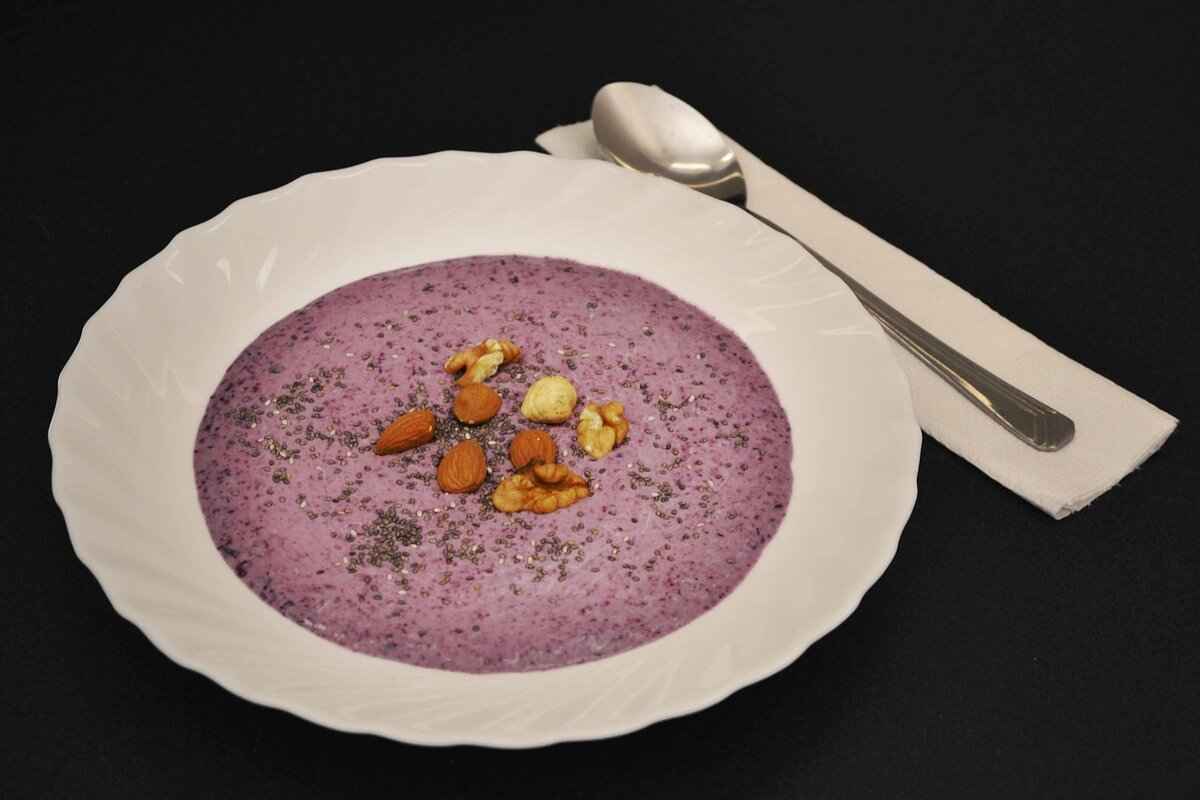
Health Benefits of Chia Seeds Beyond Fiber
Chia seeds, often dubbed as a superfood, are small yet mighty seeds packed with nutrients. While their high fiber content is widely recognized, they also boast an impressive array of other health benefits that contribute significantly to overall wellness. This article delves into the various health benefits of chia seeds beyond their fiber content, highlighting their role in enhancing heart health, providing essential minerals, and offering antioxidant protection.
Chia seeds are derived from the Salvia hispanica plant and are known for their remarkable nutritional profile. They are rich in omega-3 fatty acids, antioxidants, and essential minerals like calcium, magnesium, and phosphorus. These components work synergistically to support various bodily functions.
One of the standout features of chia seeds is their high content of alpha-linolenic acid (ALA), a type of omega-3 fatty acid. Omega-3s are renowned for their heart health benefits, which include:
- Reducing inflammation: Omega-3 fatty acids help lower inflammation in the body, which is linked to various chronic diseases.
- Improving cholesterol levels: Regular consumption of chia seeds can help increase HDL (good cholesterol) and decrease LDL (bad cholesterol).
- Supporting brain health: Omega-3s are essential for cognitive function and may reduce the risk of neurodegenerative diseases.
Chia seeds are also loaded with antioxidants, which play a crucial role in protecting the body from oxidative stress. Antioxidants help neutralize free radicals, which can damage cells and lead to chronic illnesses. The antioxidants found in chia seeds include:
- Quercetin: Known for its anti-inflammatory properties.
- Chlorogenic acid: Helps regulate blood sugar levels.
- Caffeic acid: Offers cardiovascular benefits.
Chia seeds are a rich source of essential minerals that contribute to various bodily functions:
- Calcium: Vital for bone health and muscle function.
- Magnesium: Supports over 300 biochemical reactions in the body, including energy production and muscle contraction.
- Phosphorus: Important for the formation of bones and teeth, as well as energy metabolism.
Incorporating chia seeds into your daily diet is simple and versatile. Here are some practical ways:
- Add to smoothies: Blend chia seeds into your favorite smoothie for an added nutrient boost.
- Make chia pudding: Soak chia seeds in milk or a milk alternative overnight for a delicious and nutritious breakfast or snack.
- Sprinkle on meals: Use chia seeds as a topping for salads, oatmeal, or yogurt to enhance texture and nutrition.
While chia seeds are generally safe for most people, it is important to consume them in moderation. Excessive intake may lead to digestive issues such as bloating or gas, especially if not consumed with adequate water. Always consult with a healthcare provider if you have concerns about allergies or specific health conditions.
In summary, chia seeds are more than just a fiber source; they are a complete package of health benefits that support heart health, provide essential minerals, and offer powerful antioxidant protection. By incorporating chia seeds into your diet, you can enhance your overall health and well-being.
Omega-3 Fatty Acids: Heart Health and More
Omega-3 fatty acids have gained significant attention for their extensive health benefits, particularly in relation to heart health. Among the various sources of omega-3s, chia seeds stand out as a powerful plant-based option. These tiny seeds are packed with alpha-linolenic acid (ALA), a type of omega-3 fatty acid that plays a crucial role in reducing inflammation and supporting cardiovascular health.
Omega-3 fatty acids are essential fats that the body cannot produce on its own, meaning they must be obtained through diet. They are categorized into three main types: ALA, EPA (eicosapentaenoic acid), and DHA (docosahexaenoic acid). While EPA and DHA are primarily found in fish and algae, ALA is predominantly found in plant sources, making chia seeds an excellent choice for vegetarians and vegans.
- Reducing Inflammation: Chronic inflammation is a key contributor to heart disease. ALA has been shown to help lower inflammatory markers in the body, which can reduce the risk of cardiovascular problems.
- Improving Cholesterol Levels: Omega-3s can help increase levels of high-density lipoprotein (HDL) cholesterol, often referred to as “good” cholesterol, while decreasing triglycerides, which are harmful fats in the blood.
- Lowering Blood Pressure: Regular consumption of omega-3 fatty acids may contribute to lower blood pressure levels, providing additional protection against heart disease.
Chia seeds are not only rich in ALA but also provide an impressive nutritional profile, including fiber, protein, and various essential minerals. A single ounce of chia seeds contains approximately 5 grams of ALA, making it one of the most concentrated plant-based sources of omega-3 fatty acids available.
Incorporating chia seeds into your daily routine is both easy and delicious. Here are a few practical tips:
- Add to Smoothies: Blend chia seeds into your favorite smoothie for a nutrient boost.
- Make Chia Pudding: Combine chia seeds with your choice of milk or plant-based alternatives, letting them soak overnight for a tasty breakfast.
- Top Your Meals: Sprinkle chia seeds on salads, yogurt, or oatmeal to enhance both nutrition and texture.
While omega-3 fatty acids are generally safe for most individuals, it’s important to consume them in moderation. Excessive intake can lead to potential side effects, such as gastrointestinal discomfort. It’s advisable to consult a healthcare professional before making significant dietary changes, especially for those with existing health conditions or those taking medications.
In conclusion, omega-3 fatty acids, particularly those found in chia seeds, offer numerous benefits for heart health. By incorporating these nutrient-dense seeds into your diet, you can take proactive steps toward reducing inflammation, improving cholesterol levels, and supporting overall cardiovascular wellness. With their versatility and health benefits, chia seeds are an excellent addition to any health-conscious diet.
Antioxidants: Protecting Your Cells
Antioxidants play a crucial role in maintaining cellular health by neutralizing harmful free radicals that can lead to oxidative stress. This oxidative stress is associated with various chronic diseases, including cancer, heart disease, and neurodegenerative disorders. Chia seeds are an excellent source of antioxidants, making them a valuable addition to a balanced diet.
Chia seeds contain several powerful antioxidants, including:
- Quercetin: Known for its anti-inflammatory properties, quercetin helps combat oxidative stress and may reduce the risk of chronic diseases.
- Caffeic Acid: This antioxidant has been shown to have anti-inflammatory effects and can help protect against cellular damage.
- Chlorogenic Acid: Found in chia seeds, this compound helps regulate blood sugar levels and supports heart health.
Antioxidants work by neutralizing free radicals, which are unstable molecules that can cause cellular damage. Free radicals are produced through normal metabolic processes and environmental factors such as pollution, UV radiation, and smoking. By consuming foods rich in antioxidants like chia seeds, you can help your body maintain a balance between free radicals and antioxidants, reducing the risk of cellular damage.
The antioxidants in chia seeds provide numerous health benefits:
- Reducing Inflammation: Chronic inflammation is a precursor to many diseases. Antioxidants in chia seeds can help mitigate this inflammation.
- Improving Heart Health: By combatting oxidative stress, antioxidants can help lower blood pressure and improve cholesterol levels, contributing to better cardiovascular health.
- Enhancing Brain Function: Antioxidants may protect brain cells from oxidative damage, potentially reducing the risk of neurodegenerative diseases.
To fully harness the antioxidant potential of chia seeds, consider the following tips:
- Soak Chia Seeds: Soaking chia seeds in water or milk can enhance their digestibility and improve nutrient absorption.
- Combine with Other Antioxidant-Rich Foods: Pairing chia seeds with fruits like berries or vegetables can amplify their antioxidant effects.
- Incorporate into Your Diet: Add chia seeds to smoothies, oatmeal, or baked goods for an easy nutrient boost.
While antioxidants are generally safe and beneficial, excessive intake from supplements can sometimes lead to adverse effects. It is always best to obtain antioxidants from whole food sources like chia seeds rather than relying solely on supplements.
In summary, chia seeds are a powerhouse of antioxidants that contribute significantly to cellular protection and overall health. By incorporating these tiny seeds into your diet, you can take proactive steps towards reducing oxidative stress and enhancing your well-being.

How to Incorporate Chia Seeds into Your Diet?
Chia seeds have gained popularity in recent years due to their impressive nutritional profile and numerous health benefits. One of the most appealing aspects of chia seeds is their versatility in the kitchen. If you’re wondering how to incorporate chia seeds into your diet, you’re in the right place!
- Smoothies: Blend chia seeds into your favorite smoothies for an added boost of fiber and omega-3 fatty acids. They blend seamlessly and enhance the texture, making your drink more satisfying.
- Yogurt or Oatmeal: Stir chia seeds into yogurt or oatmeal for a nutritious breakfast. They absorb moisture and create a delightful texture while increasing the fiber content.
- Baked Goods: Incorporate chia seeds into muffins, bread, or pancakes. They add a subtle crunch and nutritional value without altering the flavor significantly.
- Chia Pudding: Mix chia seeds with milk or a plant-based alternative and let them sit overnight. The result is a creamy, delicious pudding that can be flavored with vanilla, cocoa, or fruits.
Another simple method to enjoy chia seeds is by using them as a topping. Here are some ideas:
- Salads: Sprinkle chia seeds over salads to enhance texture and nutritional value. They provide a nice crunch and blend well with dressings.
- Soups: Add a tablespoon of chia seeds to soups or stews for a nutrient boost. They will thicken the soup slightly while providing additional fiber.
- Fruit Bowls: Top your fruit bowls with chia seeds for an extra layer of nutrition. They pair beautifully with various fruits and add a delightful crunch.
For a refreshing drink, consider making a chia seed beverage:
- Chia Fresca: Mix chia seeds with water, lemon or lime juice, and a bit of sweetener. This hydrating drink is popular in many cultures and is a great way to enjoy chia seeds.
- Infused Water: Add chia seeds to your infused water recipes. They will absorb the flavors from fruits and herbs, making your hydration more enjoyable.
To maximize the benefits of chia seeds:
- Hydration: Always ensure that you consume enough water when eating chia seeds, as they absorb liquid and can expand in your stomach.
- Start Small: If you’re new to chia seeds, start with a small amount and gradually increase your intake to avoid any digestive discomfort.
- Storage: Store chia seeds in a cool, dry place to maintain their freshness and nutritional quality.
Incorporating chia seeds into your diet is not only easy but also a delicious way to enhance your meals. With their numerous health benefits, including improved digestion and heart health, chia seeds are a fantastic addition to any diet. Whether you mix them into smoothies, sprinkle them on salads, or create a delightful chia pudding, the possibilities are endless!
Chia Pudding: A Popular Recipe
Chia pudding has gained immense popularity as a versatile and nutritious dish that appeals to health enthusiasts and food lovers alike. This simple recipe not only allows you to enjoy the numerous benefits of chia seeds but also serves as a delightful snack or breakfast option. By combining chia seeds with various liquids, including milk or plant-based alternatives, you can create a creamy and satisfying treat that is rich in nutrients.
Chia seeds are renowned for their impressive nutritional profile. They are packed with fiber, protein, omega-3 fatty acids, and essential minerals such as calcium and magnesium. This combination contributes to a variety of health benefits, including improved digestion, enhanced heart health, and increased energy levels. When you prepare chia pudding, you harness these benefits in a delicious and easy-to-make dish.
Creating chia pudding is straightforward and requires minimal ingredients. Here’s a basic recipe:
- Ingredients:
- 1/4 cup chia seeds
- 1 cup milk (dairy or plant-based)
- 1-2 tablespoons sweetener (like honey or maple syrup)
- 1/2 teaspoon vanilla extract (optional)
- Instructions:
- In a bowl, combine the chia seeds, milk, sweetener, and vanilla extract.
- Stir well to prevent clumping.
- Let the mixture sit for about 5-10 minutes, then stir again.
- Cover and refrigerate for at least 2 hours or overnight to allow the chia seeds to absorb the liquid and form a pudding-like consistency.
- Serve chilled, topped with your favorite fruits, nuts, or granola.
Chia pudding stands out for several reasons:
- Easy to Prepare: With minimal prep time, chia pudding can be made ahead of time and stored in the refrigerator, making it a convenient option for busy mornings.
- Customizable: You can easily modify the recipe to suit your taste preferences by experimenting with different flavors, toppings, and sweeteners.
- Nutrient-Dense: Each serving is loaded with essential nutrients, making it a smart choice for anyone looking to enhance their diet.
To keep your chia pudding exciting, consider trying these creative variations:
- Chocolate Chia Pudding: Add cocoa powder to the base recipe for a rich, chocolatey flavor.
- Fruit-Infused Chia Pudding: Blend fruits like bananas or berries into the milk before mixing with chia seeds for a fruity twist.
- Spiced Chia Pudding: Incorporate spices like cinnamon or nutmeg for added warmth and flavor.
Incorporating chia pudding into your diet can lead to several health benefits:
- Boosts Digestive Health: The high fiber content aids in promoting regular bowel movements and supports gut health.
- Supports Weight Management: Chia pudding can help control appetite due to its ability to expand in the stomach, promoting a feeling of fullness.
- Enhances Heart Health: The omega-3 fatty acids found in chia seeds contribute to heart health by reducing inflammation and improving cholesterol levels.
In summary, chia pudding is not just a trendy dish; it is a nutritious and versatile option that can easily be incorporated into your daily diet. With its myriad of health benefits and endless customization possibilities, it’s no wonder that chia pudding has become a favorite among health-conscious individuals.
Sprinkling Chia Seeds on Meals
Chia seeds have gained popularity in recent years, not only for their nutritional benefits but also for their versatility in various dishes. One of the simplest ways to incorporate these tiny powerhouses into your diet is by . This method allows you to enhance the nutritional profile of your food without changing its flavor.
Chia seeds are packed with essential nutrients, making them an excellent addition to any meal. Here are some compelling reasons to sprinkle them on your food:
- High in Fiber: Chia seeds are rich in both soluble and insoluble fiber, which can help maintain digestive health.
- Omega-3 Fatty Acids: These seeds are a great source of plant-based omega-3s, which are beneficial for heart health.
- Rich in Antioxidants: Chia seeds contain antioxidants that help combat oxidative stress in the body.
- Low in Calories: Adding chia seeds to your meals increases their nutritional value without significantly increasing calorie intake.
Incorporating chia seeds into your meals is incredibly easy. Here are some ideas:
- Salads: Add a tablespoon of chia seeds to your salads for a delightful crunch and added nutrition.
- Oatmeal: Mix chia seeds into your morning oatmeal for a filling breakfast that provides sustained energy.
- Soups: Sprinkle chia seeds on top of soups before serving to boost their health benefits.
- Smoothies: Blend chia seeds into your smoothies for added thickness and nutritional value.
Sprinkling chia seeds on meals not only enhances flavor but also provides numerous health benefits:
1. **Digestive Health**: The fiber in chia seeds promotes regular bowel movements and prevents constipation.2. **Heart Health**: Omega-3 fatty acids help lower cholesterol levels and reduce inflammation.3. **Bone Health**: Chia seeds are a good source of calcium, magnesium, and phosphorus, essential for maintaining strong bones.4. **Weight Management**: The gel-forming property of chia seeds can help you feel full longer, aiding in weight control.
While chia seeds are generally safe for most people, it’s important to consume them in moderation. Here are some tips:
- Hydration: Chia seeds absorb a significant amount of water, so it’s essential to stay hydrated when consuming them.
- Gradual Introduction: If you’re new to chia seeds, start with a small amount to see how your body reacts.
- Allergic Reactions: Though rare, some individuals might experience allergic reactions. Monitor your body’s response when trying them for the first time.
In conclusion, sprinkling chia seeds on your meals is a simple yet effective way to enrich your diet. Their nutrient density, combined with their versatility, makes them a fantastic addition to salads, oatmeal, soups, and more. By incorporating chia seeds into your daily meals, you can enjoy a myriad of health benefits while enhancing the overall taste and texture of your food.

Are There Any Side Effects of Chia Seeds?
Chia seeds have gained immense popularity due to their numerous health benefits, particularly their rich fiber content. However, as with any food, it is essential to understand the potential side effects associated with their consumption. While chia seeds are generally safe for most individuals, consuming them in excess may lead to digestive discomfort. Therefore, it is crucial to introduce them gradually into your diet.
What Happens When You Consume Too Many Chia Seeds?
Overconsumption of chia seeds can lead to various digestive issues. Some individuals may experience bloating, gas, or even abdominal pain if they consume a large quantity at once. This is particularly true for those who are not adequately hydrated, as chia seeds absorb significant amounts of water and expand in the digestive tract.
How Can You Prevent Digestive Discomfort?
- Start Slowly: If you are new to chia seeds, begin with a small amount, such as one teaspoon, and gradually increase your intake over time.
- Stay Hydrated: Ensure you drink plenty of water throughout the day, especially when consuming chia seeds, to help them expand properly and ease digestion.
- Mix with Liquids: Consider soaking chia seeds in water or other liquids before consumption. This helps them to expand outside of your digestive system, reducing the risk of discomfort.
Can Chia Seeds Cause Allergic Reactions?
Although rare, some individuals may experience an allergic reaction to chia seeds. Symptoms can include itching, rash, or gastrointestinal distress. If you have a history of food allergies, it is advisable to monitor your body’s response after consuming chia seeds for the first time.
Who Should Avoid Chia Seeds?
While chia seeds are generally safe, certain populations may want to exercise caution. This includes individuals with digestive disorders such as irritable bowel syndrome (IBS) or those who have had previous issues with fiber intake. Consulting with a healthcare professional before adding chia seeds to your diet is a wise decision.
What Are the Benefits That Outweigh the Risks?
Despite the potential side effects, the health benefits of chia seeds are significant. They are a rich source of omega-3 fatty acids, antioxidants, and essential minerals, all of which contribute to overall health and wellness. The fiber content aids in digestion and supports a healthy gut microbiome, making them a valuable addition to a balanced diet.
Final Thoughts
In conclusion, while chia seeds offer numerous health benefits, it is crucial to consume them mindfully. By introducing them gradually and ensuring proper hydration, you can enjoy their advantages while minimizing the risk of digestive discomfort. As with any dietary change, listening to your body and consulting with a healthcare professional is always recommended.
Potential Digestive Issues
Chia seeds are celebrated for their numerous health benefits, particularly their impressive fiber content. However, as with any food, moderation is key. While many individuals enjoy chia seeds without issue, some may encounter digestive discomfort if they consume them in excess. Understanding the potential digestive issues associated with chia seeds can help you incorporate them into your diet more effectively.
When it comes to digestive health, chia seeds can be a double-edged sword. Here are some common issues that may arise:
- Bloating: Some individuals may experience a feeling of fullness or swelling in the abdomen after consuming large quantities of chia seeds.
- Gas: Excessive intake can lead to increased gas production in the digestive system, causing discomfort.
- Constipation: Ironically, while chia seeds are high in fiber, consuming them without adequate hydration can lead to constipation.
The primary reason for these digestive issues stems from the fiber content in chia seeds. They are rich in both soluble and insoluble fiber, which can be beneficial for digestion when consumed properly. However, when eaten in large amounts, particularly without sufficient water, chia seeds can absorb significant amounts of fluid in the digestive tract, leading to discomfort.
To enjoy the benefits of chia seeds while minimizing the risk of digestive issues, consider the following tips:
- Start Slowly: If you’re new to chia seeds, begin with a small amount, such as one teaspoon, and gradually increase your intake.
- Stay Hydrated: Ensure you drink plenty of water throughout the day, especially when consuming chia seeds. This helps the fiber work effectively and reduces the risk of bloating and constipation.
- Soak Before Eating: Soaking chia seeds in water or another liquid before consumption can help them expand and soften, making them easier to digest.
While chia seeds are generally safe for most people, certain individuals should exercise caution:
- Those with Digestive Disorders: Individuals with conditions like irritable bowel syndrome (IBS) may find chia seeds exacerbate their symptoms.
- People with Allergies: Although rare, some individuals may be allergic to chia seeds. It’s crucial to monitor for any adverse reactions.
If you experience persistent digestive discomfort after consuming chia seeds, it may be wise to consult a healthcare professional. They can provide personalized advice based on your health history and dietary needs.
In conclusion, while chia seeds can be a valuable addition to your diet, being mindful of your consumption and hydration levels is essential to avoid potential digestive issues. By following these guidelines, you can enjoy the many benefits of chia seeds while maintaining a healthy digestive system.
Allergic Reactions and Precautions
Chia seeds have gained popularity for their numerous health benefits, particularly their high fiber content, omega-3 fatty acids, and antioxidants. However, it’s important to note that while they are generally safe for most people, some individuals may experience allergic reactions. Understanding these potential reactions is crucial, especially for those with a history of food allergies.
What Are the Symptoms of Chia Seed Allergy?
- Skin Reactions: Some individuals may develop rashes, hives, or itching after consuming chia seeds.
- Gastrointestinal Issues: Symptoms such as nausea, vomiting, or diarrhea may occur in allergic individuals.
- Respiratory Problems: Difficulty breathing, wheezing, or nasal congestion can be signs of a more severe allergic reaction.
Who Is at Risk for Chia Seed Allergies?
People with known allergies to other seeds, such as flaxseed or sesame seeds, may be at a higher risk for developing an allergy to chia seeds. It is advisable for these individuals to exercise caution when introducing chia seeds into their diet.
How Can You Safely Introduce Chia Seeds?
To minimize the risk of an allergic reaction, it’s essential to introduce chia seeds gradually into your diet. Start with small amounts, such as a teaspoon, and monitor your body’s response. If you notice any adverse effects, it’s best to discontinue use and consult a healthcare professional.
What to Do If You Experience an Allergic Reaction?
If you suspect you are having an allergic reaction to chia seeds, it is crucial to seek medical attention immediately. In severe cases, anaphylaxis can occur, requiring emergency treatment. Always inform your healthcare provider about your dietary habits and any recent changes.
Conclusion
Though chia seeds offer numerous health benefits, it is essential to be aware of the potential for allergic reactions. Monitoring your body’s response and consulting with a healthcare professional can help ensure safe consumption. By taking these precautions, you can enjoy the nutritional advantages of chia seeds while minimizing any risks associated with allergies.
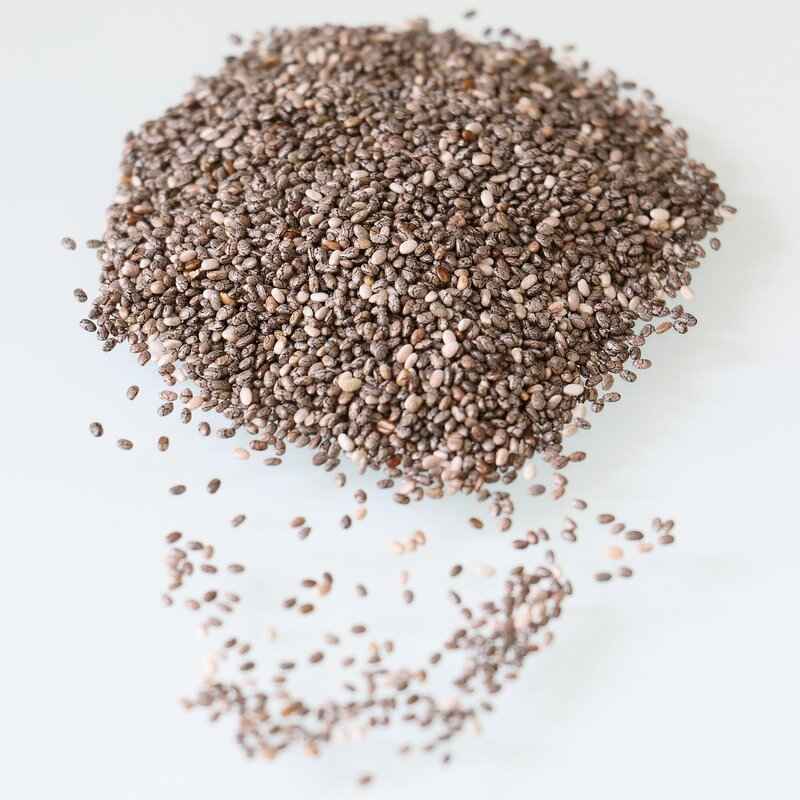
Final Thoughts on Chia Seeds and Gut Health
Chia seeds are increasingly recognized as a nutritional powerhouse that can significantly enhance our diets. These tiny seeds, derived from the Salvia hispanica plant, are packed with an impressive array of nutrients, particularly fiber. Their ability to promote better digestion and overall gut health has made them a popular choice among health enthusiasts.
One of the most remarkable features of chia seeds is their high fiber content. In fact, just one ounce (28 grams) of chia seeds contains about 11 grams of fiber, which is nearly one-third of the recommended daily intake for adults. This fiber is crucial for maintaining a healthy digestive system. But what exactly makes fiber so important for our digestive health?
Fiber serves multiple roles in our digestive systems. Primarily, it aids in promoting regular bowel movements and preventing constipation. A diet rich in fiber helps to keep the digestive tract functioning smoothly, which is vital for overall well-being. Additionally, fiber supports a healthy gut microbiome, which plays a critical role in our immune system and metabolic health.
Chia seeds are unique in that they contain both soluble and insoluble fiber. Each type offers distinct advantages:
- Soluble Fiber: This type of fiber absorbs water and forms a gel-like substance in the digestive tract. It helps to slow digestion, which can lead to improved satiety and better blood sugar control.
- Insoluble Fiber: This fiber adds bulk to the stool and promotes faster passage of food through the digestive system, which is essential for preventing digestive disorders.
Chia seeds are also beneficial for gut health because they act as prebiotics. Prebiotics are substances that nourish the beneficial bacteria in the gut, helping to maintain a balanced microbiome. A healthy gut microbiome is linked to improved digestion, enhanced nutrient absorption, and a stronger immune system.
While fiber is a standout feature, chia seeds also provide a wealth of other health benefits. They are rich in omega-3 fatty acids, which are essential for heart health and reducing inflammation. Additionally, chia seeds are loaded with antioxidants, which help protect our cells from oxidative stress and may lower the risk of chronic diseases.
Incorporating chia seeds into your daily meals is simple and versatile. Here are a few practical ways to enjoy their benefits:
- Chia Pudding: Combine chia seeds with milk or a plant-based alternative, let it sit overnight, and enjoy a nutritious snack or breakfast.
- Sprinkling on Meals: Add chia seeds to salads, oatmeal, or soups for an extra nutritional boost without altering the flavor.
While chia seeds are generally safe for most individuals, consuming them in excessive amounts can lead to digestive discomfort. It’s important to introduce them gradually into your diet, especially if you are not accustomed to high-fiber foods. Some may experience bloating or gas if they consume too many at once, particularly without adequate hydration.
In summary, chia seeds are a remarkable addition to any diet, providing a wealth of fiber and other essential nutrients that promote better digestion and overall gut health. Their versatility makes them easy to incorporate into various meals, and their numerous health benefits make them a wise choice for anyone looking to enhance their well-being.
Frequently Asked Questions
- What are the health benefits of chia seeds?
Chia seeds are packed with fiber, omega-3 fatty acids, and antioxidants. They help improve digestion, support heart health, and combat oxidative stress, making them a fantastic addition to your diet.
- How can I incorporate chia seeds into my meals?
You can add chia seeds to smoothies, yogurt, oatmeal, or salads. They can also be used to make chia pudding by soaking them in milk or a plant-based alternative.
- Are there any side effects of eating chia seeds?
While chia seeds are generally safe, consuming them in excess may cause digestive discomfort, such as bloating or gas. It’s best to start with small amounts and increase gradually.
- Can chia seeds help with weight management?
Yes! The high fiber content in chia seeds can promote a feeling of fullness, helping you control your appetite and potentially aiding in weight management.
- Are chia seeds suitable for everyone?
Most people can enjoy chia seeds, but those with certain allergies or digestive issues should consult a healthcare professional before adding them to their diet.

